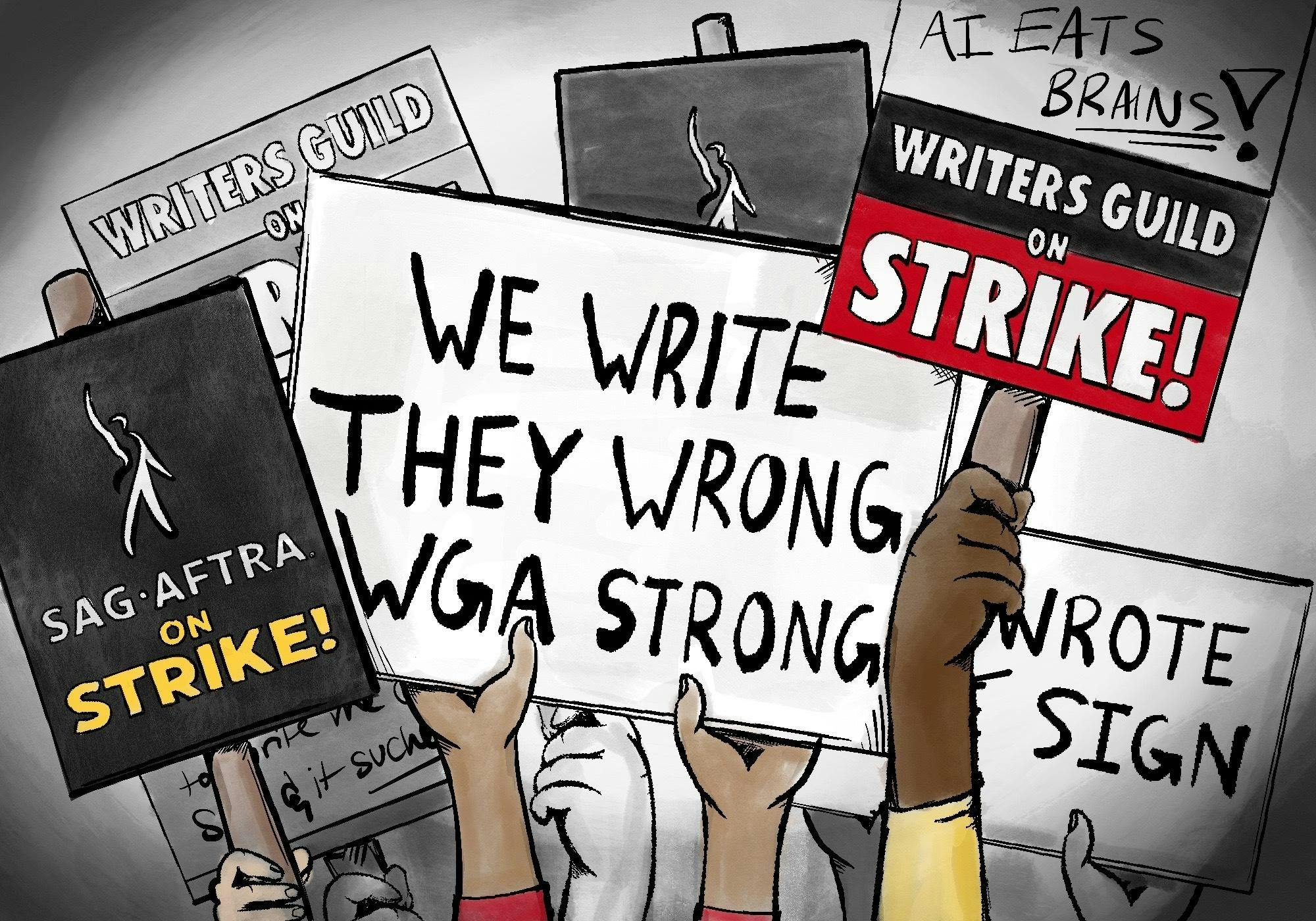As the ongoing writers' and actors' strikes in Hollywood pass the 125-day mark, Michigan State University film students are growing uncertain about their futures.
The Screen Actors Guild & American Federation of Television and Radio Artists joined the Writer’s Guild of America, or WGA, in July to create the largest strike in the industry.
“I think [the strikes] will impact students in a positive way, overall,” film studies professor and experienced filmmaker Peter Johnston said. “It should lead to living wages and better working conditions for working class writers and actors.”
The first strike began May 2, 2023, when negotiations over labor disputes ended between WGA and the Alliance of Motion Picture and Television Producers, or AMPTP, leading to over 11,000 writers walking out of their offices at midnight.
Today, a combined total of over 75,000 unionized actors and writers are still waiting for higher pay and better working conditions from their employers.
A press release from the WGA stated writers are being employed for shorter and shorter periods of time, from weekly employment in television to “day rates” in comedy variety shows.
“(Studios) have closed the door on their labor force and opened the door to writing as an entirely freelance profession," the press release said.
For students like Johnston, who is an independent filmmaker, this could create more opportunities in other fields.
“I wanted to do my own thing,” Johnston said. “Although you have a much smaller budget, you’re given so much more flexibility.”
Johnston’s work ranges from local documentaries focusing on MSU students to experimental projects such as content for “Filmetry,” his poetry film festival.
One of Johnston’s students, digital storytelling senior Omolara Clay, said she is anxious to begin working in the film industry when she graduates this spring.
“What your parents would say, they would be like, ‘okay, you can't really make a living off writing,’” Clay said. “But there was a time where you could do that. And now it's just definitely out of the question.”
The ongoing writers' strike has exceeded the length of the 100-day writers' strike in 2007, which drastically changed the television industry with a shift toward unscripted reality shows.
Clay said she focuses on being a producer but still feels affected by the strike. Upcoming movies and shows, including "Avatar 3"and a fourth Star Wars trilogy, have been delayed as a result of the strike, as reported by Production Weekly.
In ten years, Clay said, she wants to be producing shows for big studios and directing her first movie.
“I don't know how well that will work out in terms of money and stuff like that, but I definitely see that," she said.
Journalism and music performance senior Aidan Binford said the strike opened his eyes to the benefits of working independently.
“You don’t have to worry about them raising questions about what you want to film, so it gives you the opportunity to create your own creative output,” Binford said.
Binford is pursuing film as a secondary source of income to music, and wants to ultimately become a professor. Because academia is in a very "writing-focused" world, Binford said, it doesn't reach the same audiences that videos do.
Binford said as a professor, he wants to prepare his students for the lack of job security they will have in their careers.
Support student media!
Please consider donating to The State News and help fund the future of journalism.
“I don't want anybody going out there thinking that they're going to just have a set position in the set job that they're going to be offered,” Binford said. “It's very jarring. It's very unstable.”
On the other hand, Johnston said he believes writers and actors can benefit from the strikes.
“When the studios fight back, I don’t see the guilds caving in,” Johnston said.
Johnston, Binford and Clay all agree that the strike will have a positive impact on the film industry, whether or not it succeeds.
Clay said the strike was "a long time coming," and that she is glad it is happening.
“Even if the strike fails, students will recognize how hard it is to make a living working for a studio in the current configuration,” Johnston said.
Discussion
Share and discuss “‘It’s very jarring’: MSU film students react to Hollywood writers' strikes” on social media.







